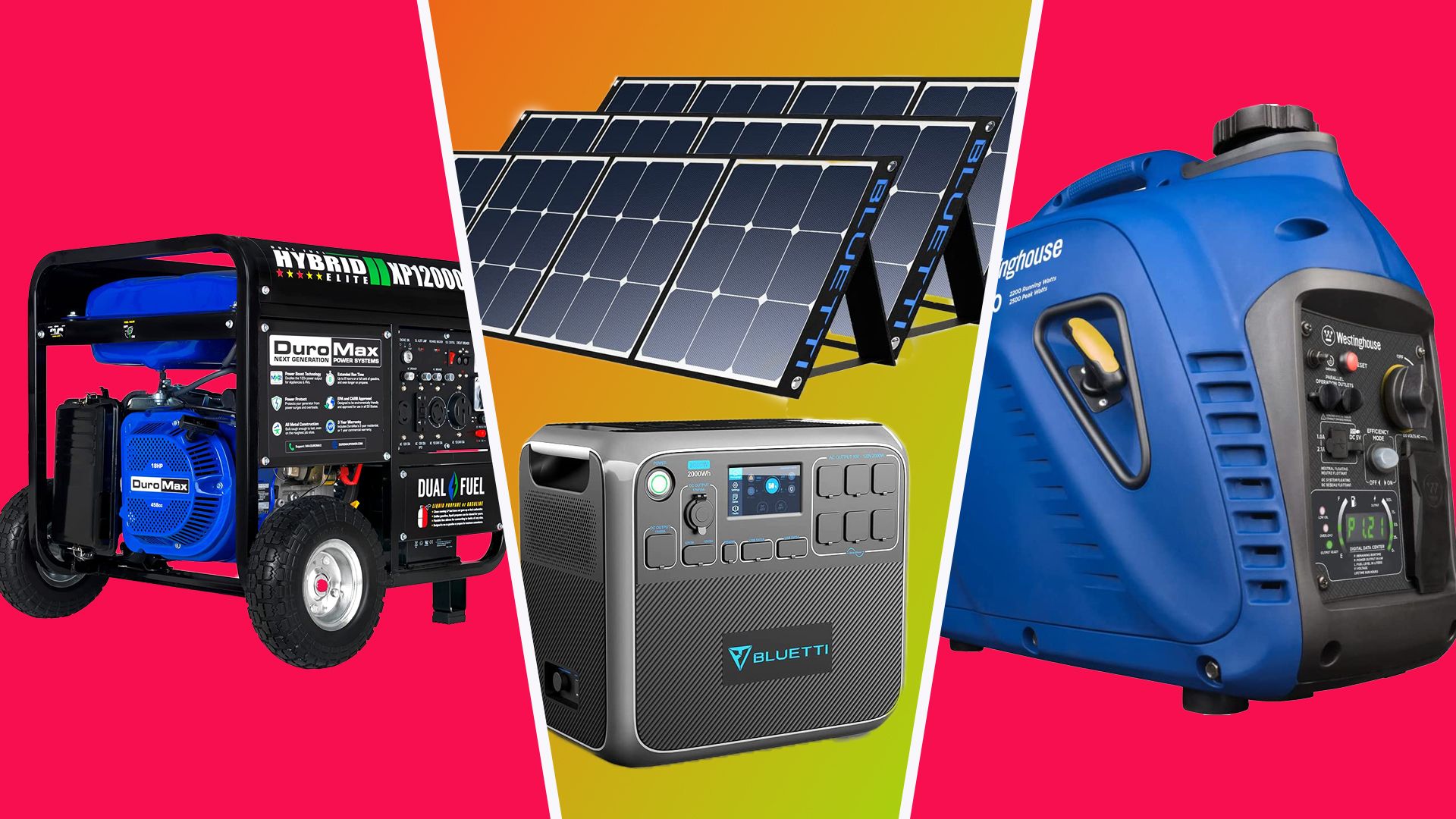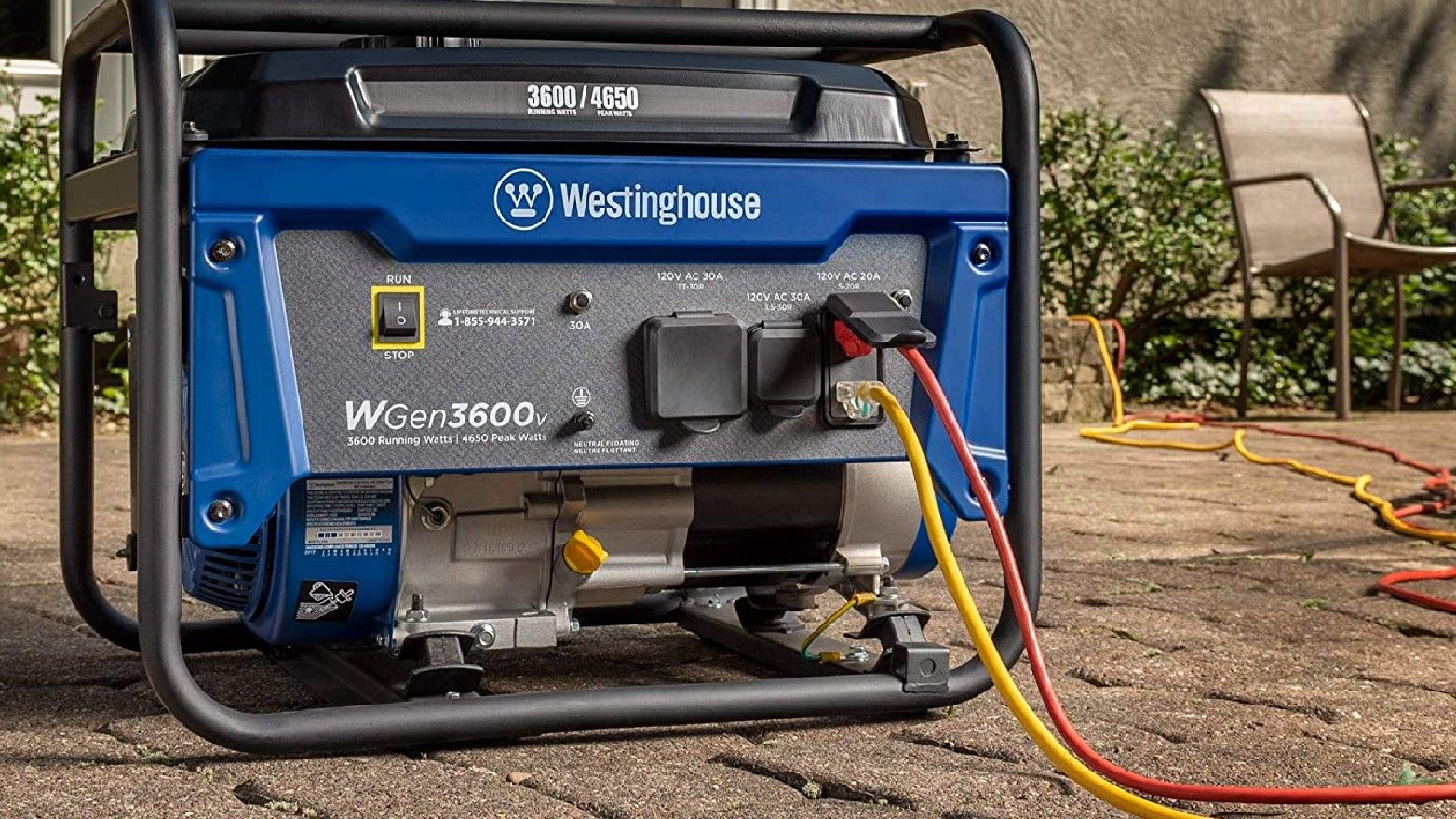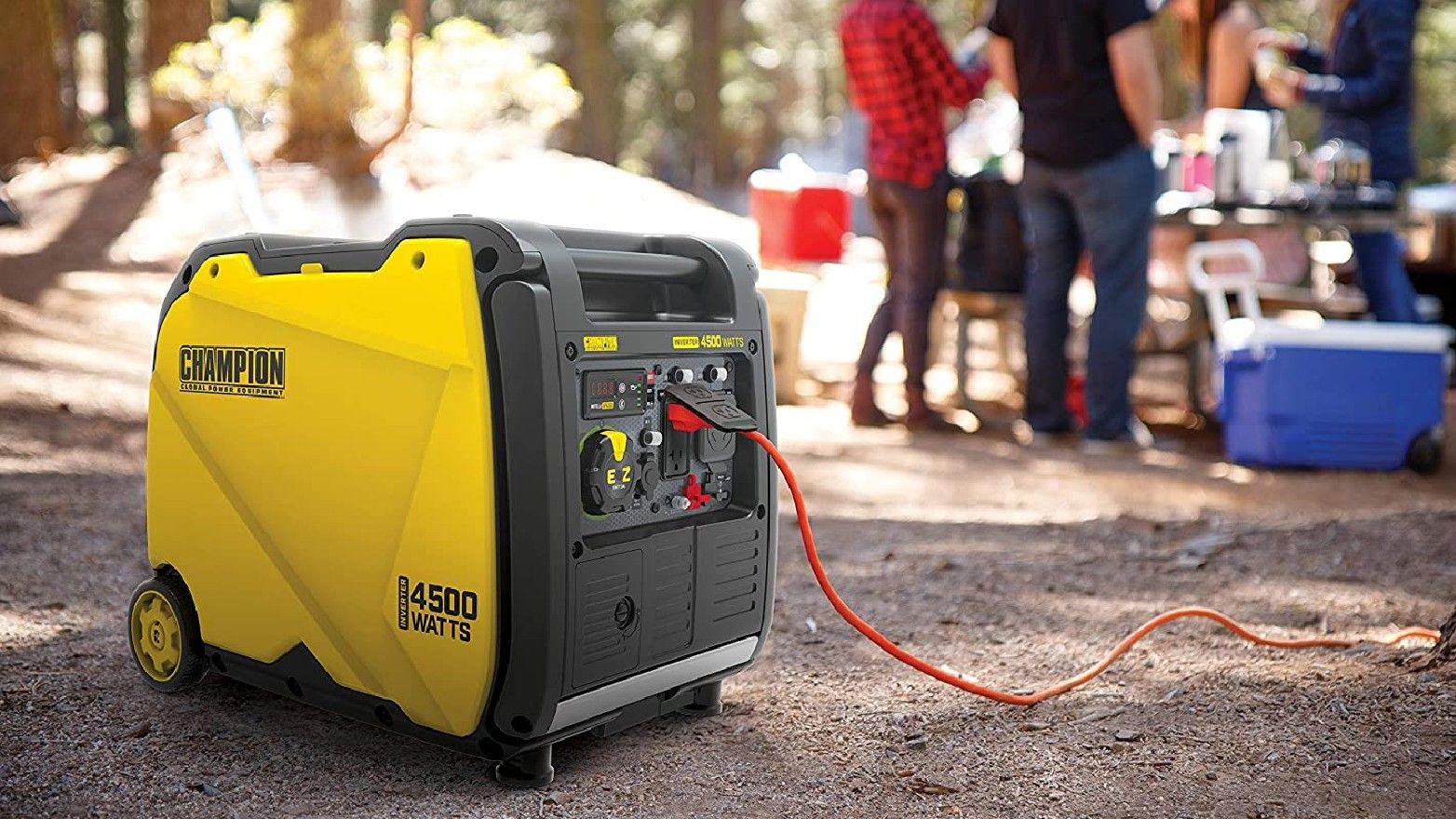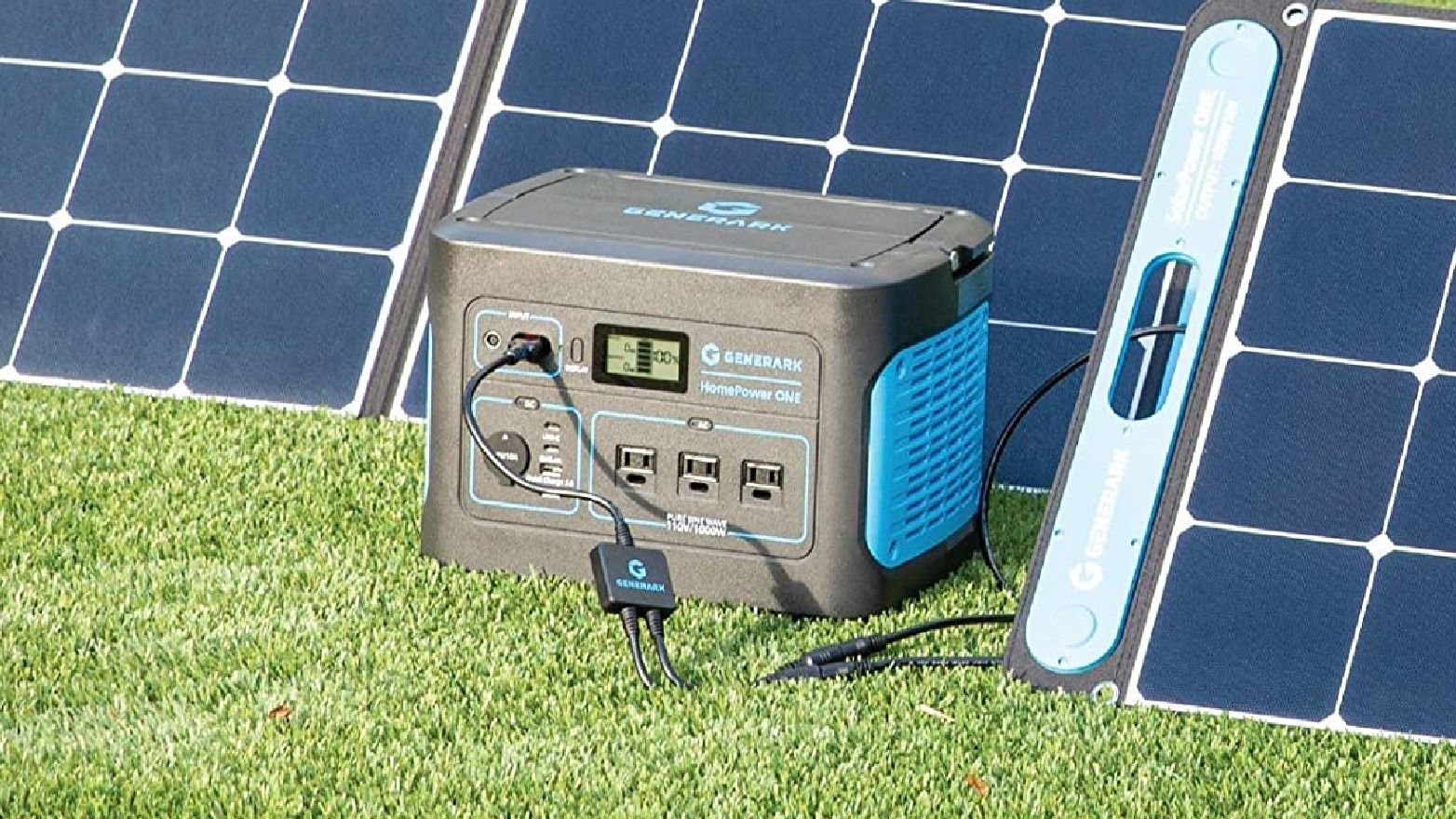Quick Links
If you regularly host outdoor events or are just worried about the contents of your freezer during a power outage, buying a portable generator is a good idea. But not all generators are the same, and each type has its pros and cons.
People buy a portable generator because they need temporary electrical power away from the regular power grid. This could be because your power is out and you want to keep your appliances on, or maybe you host outdoor events regularly; you might just want a little more comfort while you're camping.
There are three main types of portable generators (conventional, invertor, and solar), and they're unique enough to meet almost every requirement. Your needs might include good fuel economy, low price, high output, reliability, versatility, and portability. Concerns could be things like safety, noise, and environmental impact. Whatever you're looking for, one of the three portable generator types should be a good fit.
Conventional Generators
A conventional generator's main benefit over the other types listed in this article is power output. While there is a whole range of conventional generators, they usually have an output of at least 4,000 Watts and up to around 12,000 Watts. While that's overkill if you want to hook up a sound system for a family BBQ, it's ideal if you're going to power multiple large appliances during a power outage. They are also cheaper than inverter or solar generators.
That increased power comes at a cost. Conventional generators operate at full capacity all of the time, so if you buy an 8,000 Watt generator, it will be producing 8,000 Watts whether you want it to or not. This won't make anything explode, but it could be seen as a waste of fuel if you don't need that much power. Conventional generators are also louder, worse for the environment, and far less portable than the other options on the market.
As with other fuel-powered generators, there are safety issues to consider. Thousands of people are hospitalized or killed each year while improperly using generators. A conventional generator runs on fossil fuels, usually propane, gasoline, or diesel. Pricier generators can be "dual fuel" and run on more than one energy source, usually propane and gasoline.
Propane is safer to store and will not expire if stored correctly, but gas and diesel degrade over time. Fossil fuels are highly flammable and need to be stored properly. Fuel-based generators emit highly toxic fumes, so never use one in an enclosed area. Set up your generator outside and away from any windows.
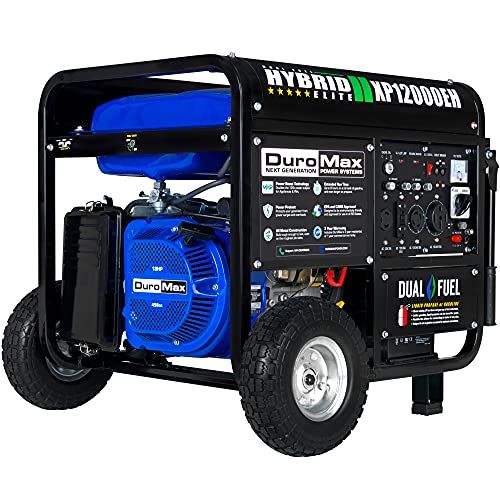
DuroMax XP12000EH Generator
A large capacity dual fuel generator from a company with an excellent reputation
Inverter Generators
An inverter generator is similar to a conventional generator but has one significant difference. Unlike a standard generator which constantly runs at maximum capacity, an inverter will only produce as much power as you need it to. The two main benefits of this are fuel savings and noise reduction. A generator that isn't working as hard doesn't use as much fuel, and it will be significantly quieter.
Inverter generators tend to be smaller than standard generators, and their efficiency means they require smaller fuel tanks. This makes them a lot more portable than a lot of conventional generators.
The main downside of an inverter generator is the price. They are often between 20% and 100% more expensive than a standard generator, and there aren't many good, cheap options. However, the extra fuel efficiency mitigates the increase in price, especially when gas prices spike. A good, efficient inverter generator might offset the price difference quite quickly.
Inverters also tend to be less powerful than conventional generators, ranging from 2,000 Watts to 4,000 Watts. Standard generators usually range from 4,000 Watts upwards. Like the price issue, you can mitigate this---although the fix is expensive. You can run most inverter generators parallel with another generator, doubling the output.
You should consider an inverter generator if portability and efficiency are more important than raw output. If you go camping regularly or host many small outdoor events, an inverter generator is ideal for you.
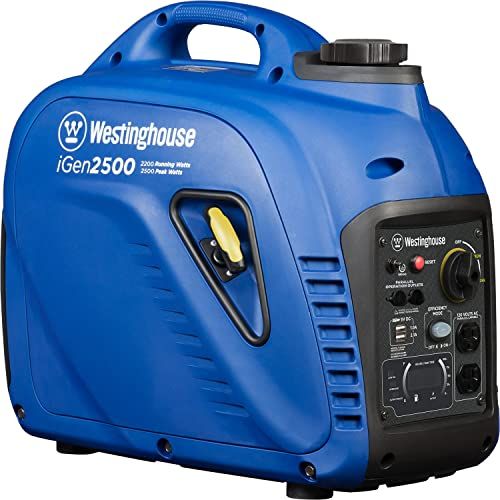
Westinghouse iGen 2500
A light fuel efficient option which provides power on the move
Solar Generators
Solar generators are the most expensive option, costing seven times as much as a standard fuel-powered generator. Price isn't the only issue. With fuel-powered generators, the output is consistent and guaranteed. However, solar generators require sunlight can be affected by things like cloud cover, placement location, and the length of the day ---so they are nowhere near as reliable as their fossil fuel counterparts. Solar generators do store power in a power bank, which manufacturers hope will get you through any cloudy patches. But the power bank won't charge when you are operating at capacity.
Solar generators come with a set of solar panels that you need to place out and plug in, so they tend to take up a lot more space and are less portable than a regular generator.
Current solar generators offer far lower wattages than their fossel fuel counterparts. Most of the generators available have less than 1000 Watts of output. If you opt for a top-of-the-line model, you may get to 2,000 Watts. That is enough to power something like a fridge, but not much else. Because of the low output and reliance on direct sunlight, I would not recommend buying a solar generator for use in an emergency situation.
It's not all bad; solar generators also have some significant positives. The lack of an engine means they are entirely silent. Sunlight is free, so solar generators cost nothing to run after the initial purchase. Fuel prices often fluctuate, so giving an exact running cost for gasoline and diesel generators isn't easy. However, a solar generator will pay for itself if you use it often. You can also charge your solar generator from the panels or other power source before you need it. You can then use your solar generator as a portable power station.
There is also a significant safety aspect. Solar generators don't give off toxic fumes---the panels still require direct sunlight, but you can place the generator's power bank in an enclosed area without any danger. You don't need to store large quantities of highly flammable fuel either.
You should consider a solar generator if you're environmentally and safety conscious. Just make sure it's within your budget, and you have room to set up the panels.
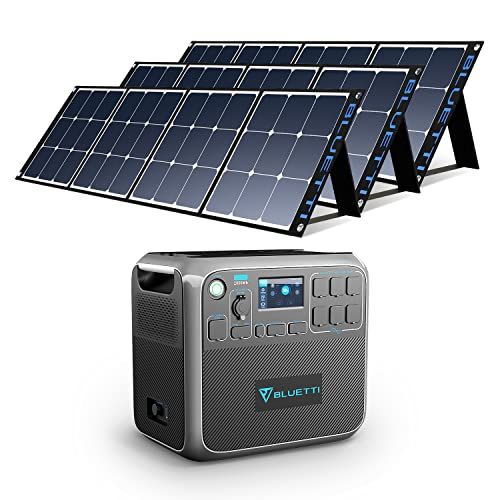
BLUETTI AC200P Portable Power Station with Solar Panel Included
One of the higher-output solar options
Are there any all-round options?
Given the wide variety of generators on the market, there is probably a generator that comes close to your exact needs. However, if you want an all-rounder that can manage in most situations, you'll need to balance output, portability, and reliability.
I believe the best all-round option is a high-output inverter generator capable of producing at least 6,000 Watts. For your money, you'll get something an average person can move around that can also comfortably power essential appliances in an emergency.
While inverters with that amount of output are expensive, it's still cheaper than buying two inverters to chain together. It's also quieter and more portable than similar conventional generators, so you can use it for events as well as backup power.
As with all good quality fuel-based generators, there is no compromise on reliability. Nor should there be. An item that is there for emergency use needs to be reliable, otherwise, it's useless.
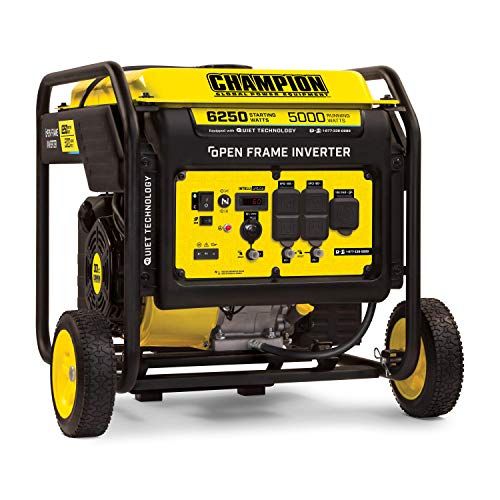
Champion 6250-Watt RV Ready Open Frame Inverter Generator
A good balance between portability and power output. Should be good on the road while still being able to power essentials during a power cut

